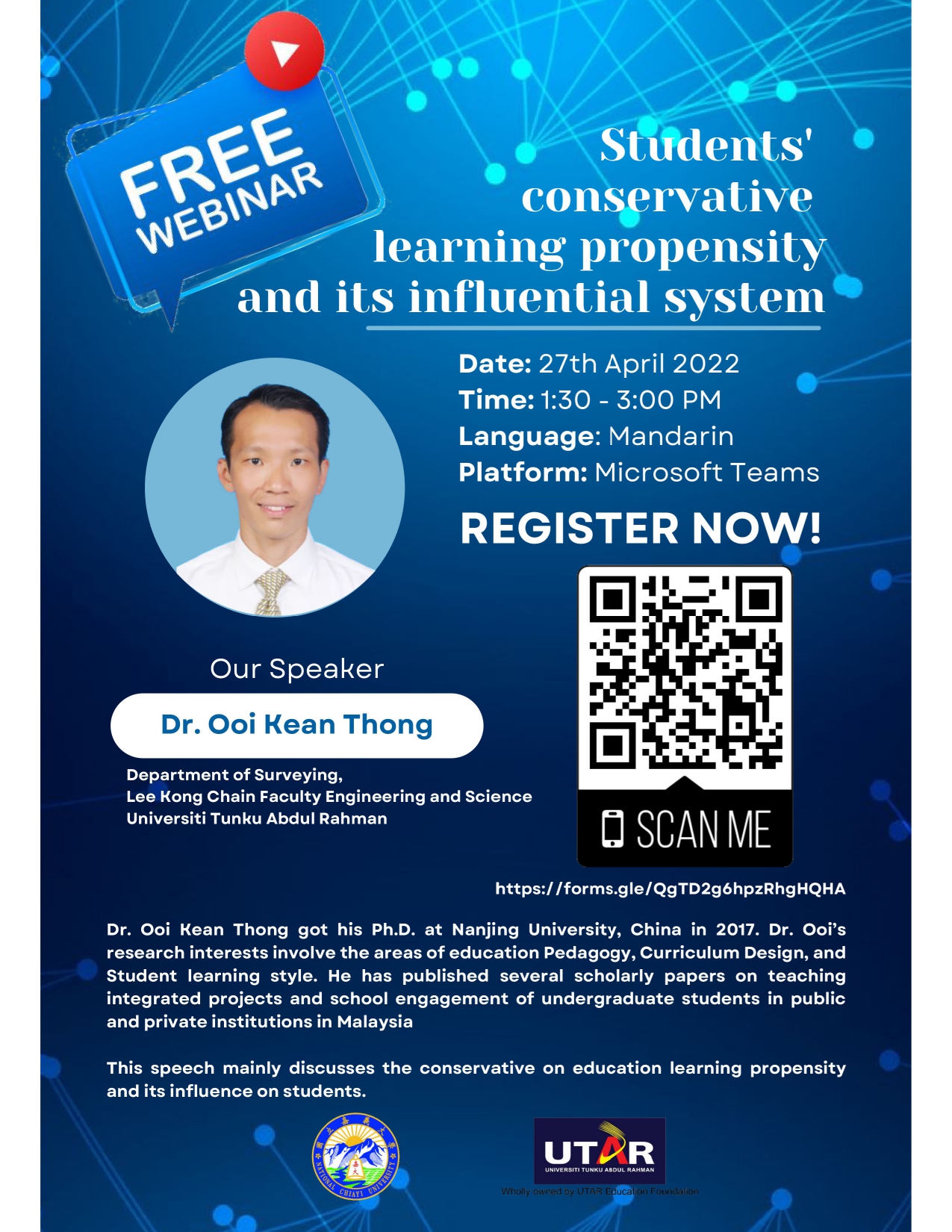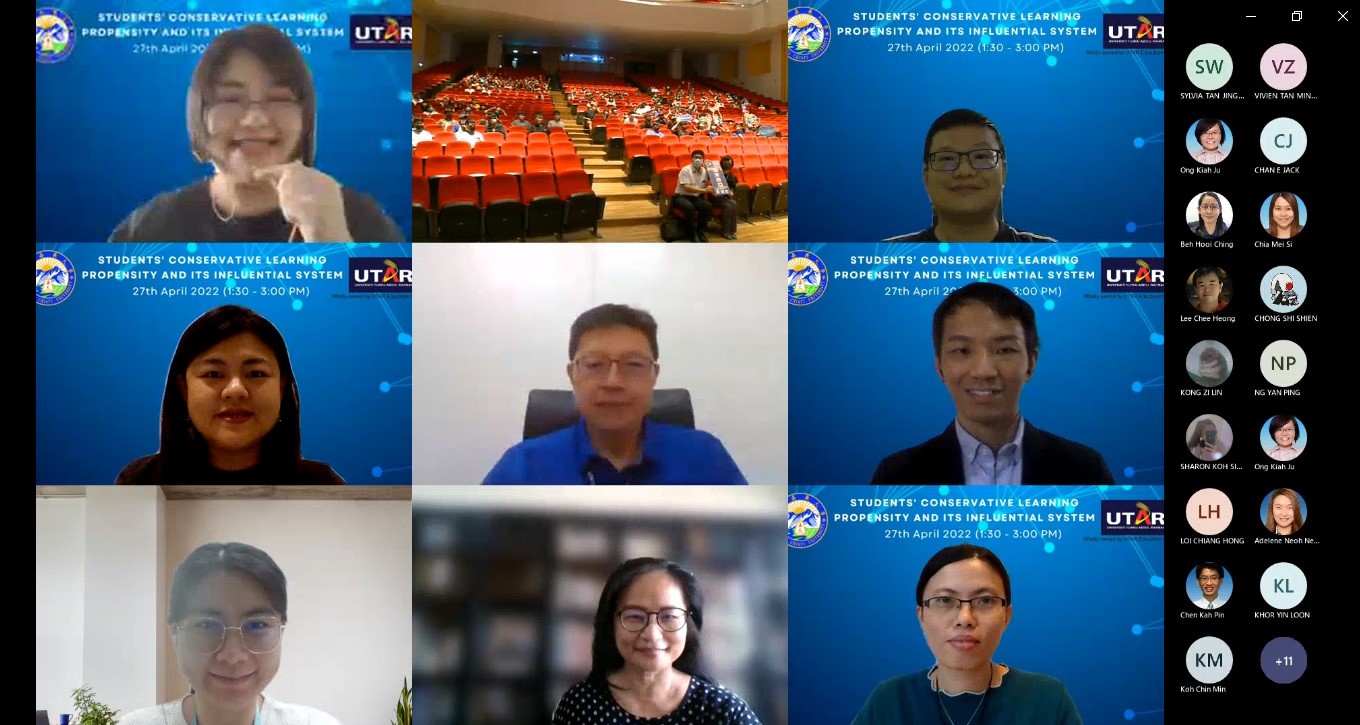
![]()
![]()

The poster of the
webinar
UTAR Centre for
Learning and Teaching (CLT) and National Chiayi University (NCYU) Taiwan
jointly organised a webinar titled Students Conservative Learning Propensity
and Its Influential System on 27 April 2022 via Microsoft Teams.
Invited to share his
insights was a lecturer from Lee Kong Chian Faculty of Engineering and
Science, Department of Surveying Dr Ooi Kean
Thong. Dr Ooi obtained his PhD at Nanjing University, China in 2017. His
research interest involves the areas of Education Pedagogy, Curriculum
Design and Students’ Learning Style.
Among the topics
discussed at the webinar were problems faced while studying; the forgetting
curve by Hermann Ebbinghaus, what is learning; what is memory; the
difference between learning and memory; phase of memory; types of memory;
function of the brain; structure of the brain; left and right brain
structures, Cornell Method, the Feynman Technique and others.
Dr Ooi kick-started
the webinar by giving a quick overview of the differences between memory and
learning. He said, “Memory refers to a person’s accumulation of past
activities, feelings, experiences, and impressions. Memory formation goes
through three main processes - Encoding, Storage, Retrieval, while learning
refers to the process of acquiring knowledge through reading, listening,
thinking, research and practice.”
He added, “Learning
and memory are closely related concepts. Learning is the acquisition of
skills or knowledge, while memory is the expression of what you’ve acquired.
Knowing the brain will allow us to adjust our learning.”
.jpg)
Dr Ooi discussing the
phases of memory
.jpg)
Dr Ooi showing the types of memory
Dr Ooi mentioned,
“The memory machine is selective about what gets in and how it changes over
time. Our brain records important events. Memories aren’t stored in just one
part of the brain. Different types are stored across different,
interconnected brain regions.”


Dr Ooi explaining the
structure of the human brain


Dr Ooi suggesting students to utilise the Cornell Method and the Feynman Technique in their study
Dr Ooi concluded his
webinar by advising participants, “In order to learn effectively, try to
connect new knowledge with your own living environment. Discuss your ideas
with classmates, teach others and figure out what you don’t understand.”
The webinar came to
an end with a Q&A session and a group photography session.

Dr Ooi (second row,
most right) with students from NCYU (top row, middle) and participants
Wholly owned by UTAR Education Foundation (200201010564(578227-M)) LEGAL STATEMENT TERM OF USAGE PRIVACY NOTICE